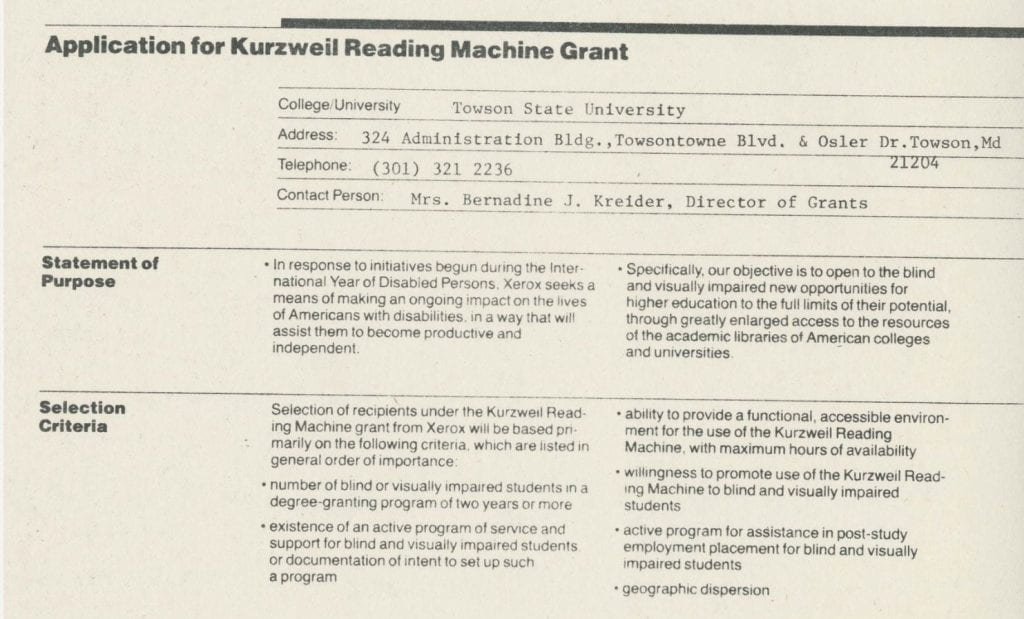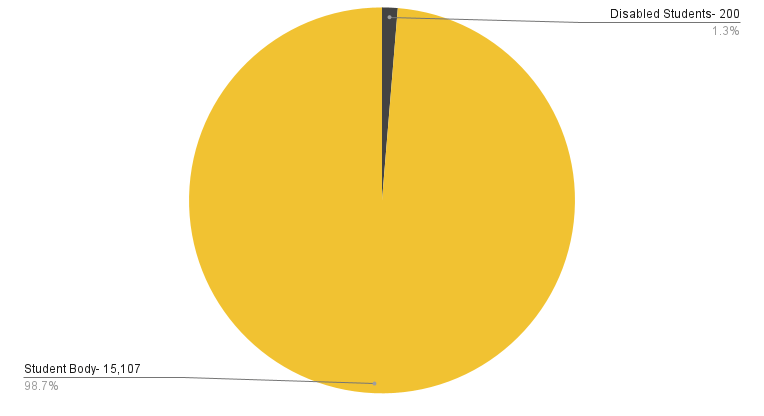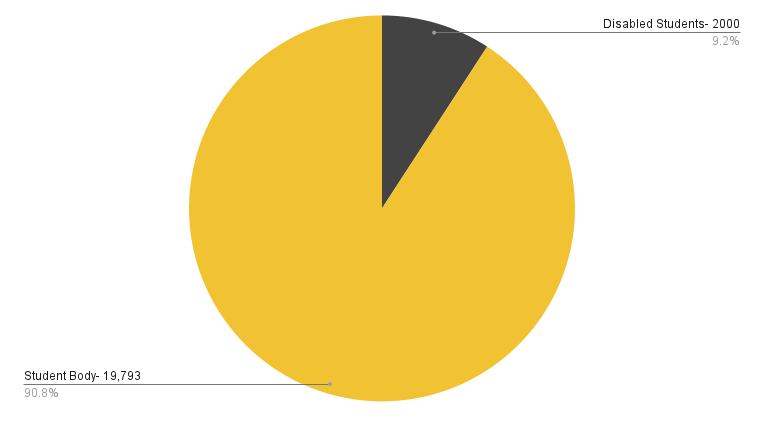This post was written by Bethany Firebaugh, Unearthing Towson’s History student researcher, Summer 2023.
The United States, as a whole, has made leaps and bounds in making its various institutions accessible to disabled students, with Towson University acting in compliance with this trend. Section 504 of the Rehabilitation Act of 1973 persuaded the university to develop and implement rudimentary services for disabled students. These services would go on to grow into the variety of different tools that TU has to offer its students today, therefore allowing more disabled Americans access to higher education.

Number of Disabled Students
Over the last 40 years, the number of disabled students as a whole and type of disability they possess has changed significantly. In 1981, there were 200 disabled students enrolled at TU, accounting for 1% of the student body. Out of the 200 disabled students, 165 possessed a physical disability, while 35 had learning disabilities. Early services for disabled students were mainly directed towards students with physical disabilities. Advertisements of University provided services for disabled students did not drop the word ‘physically’ in conjunction with ‘disabled’ until fall of 1993.

By 2022, the number of disabled students enrolled in the university had increased to over 2000, accounting for 10% of the student body. Accessibility and Disability Services (ADS) was providing assistance to a mix of physically, learning, and mentally disabled students, with mental disabilities accounting for the majority of students registered with the office.

Number of Staff
In 1981, the Assistance and Information for Disabled Students Office (AIDS) possessed a relatively small staff. It consisted of one full-time coordinator, a part-time clerk, two part-time paraprofessionals, and 18 students to assist with note-taking and other tasks.
As of 2023, ADS consists of 11 full-time staff members. The office staff consists of one Director, an Administrative Assistant, an Associate Director, an Assistant Director, a Senior Disability Coordinator, 3 Disability Specialists, an Accommodation Specialist, Assistive Technology Coordinator, and a Testing Center Coordinator. Additionally, the university hires countless student notetakers for those in need.
Services
The aspect of services for disabled students that has undergone the least amount of change is the services themselves.